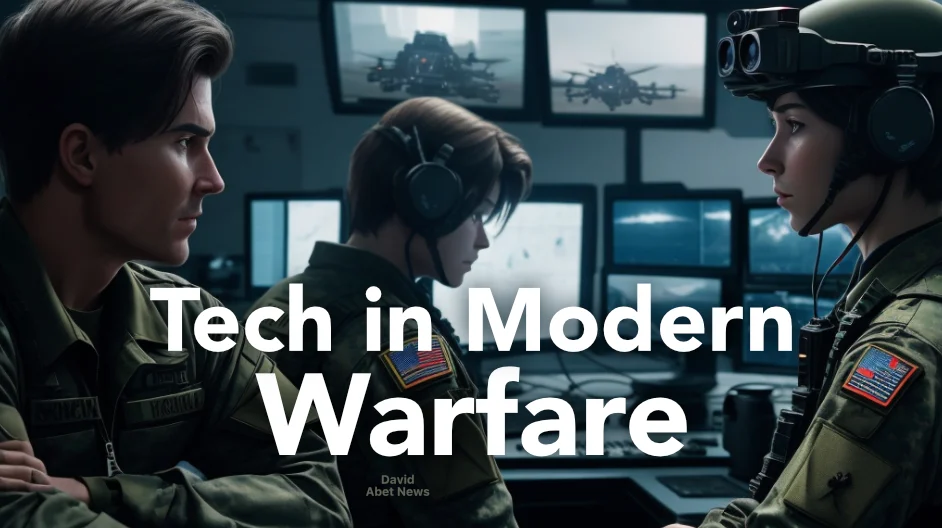Tech in Modern Warfare

Technological Advancements in the Armed Forces: The Role of AI and Starlink in Modern Conflicts
In recent years, technological advancements have been transforming the landscape of the armed forces, military, and paramilitary forces worldwide. These developments have had a profound impact on warfare, from traditional conflict zones to new arenas that now rely on cutting-edge technology. This article will explore how artificial intelligence (AI) and Starlink technology, developed by Elon Musk’s SpaceX, are influencing the modern military landscape, with a focus on current conflicts in Israel/Palestine and Russia/Ukraine.
AI in Modern Warfare
Artificial intelligence has become a critical tool for armed forces and military organizations across the globe. Its applications are vast, spanning from strategic planning and intelligence analysis to battlefield decision-making and autonomous systems. Here are some key ways AI is reshaping the military landscape:
- Data Analysis: AI can process and analyze vast amounts of data in real-time. This capability is invaluable for intelligence agencies, enabling them to detect threats and patterns that might be missed by human analysts.
- Autonomous Vehicles: AI-powered drones and unmanned ground vehicles are playing a significant role in reconnaissance and combat. They can be deployed in high-risk areas without risking human lives.
- Cybersecurity: AI helps in identifying and mitigating cyber threats, protecting sensitive military information from cyberattacks.
- Logistics and Supply Chain: AI optimizes supply chains, ensuring that troops have the necessary equipment and resources where and when they are needed.
- Predictive Maintenance: AI can predict when military equipment needs maintenance, reducing downtime and saving costs.
Israel/Palestine Conflict
In the Israel/Palestine conflict, both sides have invested heavily in technology, including AI, to gain an edge. Israel, known for its technological prowess, has integrated AI into its Iron Dome missile defense system. The Iron Dome employs AI algorithms to identify and intercept incoming rockets, drastically improving its effectiveness.
Palestinian groups have also adopted AI, albeit on a smaller scale. AI assists in the analysis of information, such as social media data, to monitor the situation on the ground, enabling them to make more informed tactical decisions.
AI’s contribution to the Israel/Palestine conflict underscores the evolving nature of warfare, where technology is as crucial as traditional military assets.
Russia/Ukraine Conflict and Starlink
In the ongoing conflict between Russia and Ukraine, technology plays an intriguing role, partly due to SpaceX’s Starlink. Starlink is a satellite internet constellation aimed at providing high-speed internet access globally. While it may not be a direct military technology, its impact on modern warfare is undeniable.
- Communication and Intelligence: Starlink provides a resilient and high-speed communication network in remote areas where traditional infrastructure is compromised due to conflict. This enables military units to maintain reliable communication and access critical intelligence.
- Coordination and Surveillance: Starlink’s global coverage enhances the coordination and surveillance capabilities of military forces. It allows for real-time tracking and monitoring of troop movements and potential threats.
- Civilian Impact: Starlink also has a significant impact on civilian populations in conflict zones. It can provide connectivity to civilians in war-torn regions, allowing them to access vital information, communicate with loved ones, and access emergency services.
The Role of Elon Musk
Elon Musk’s vision for Starlink a division of SpaceX as a global internet infrastructure is a game-changer in modern conflicts. Its ability to provide reliable, high-speed connectivity in remote and war-affected areas is a testament to the power of private industry in shaping the modern military landscape. Musk’s dual role as a tech entrepreneur and space innovator has positioned him as a key figure in the evolution of military technology.

Technological advancements, particularly in the realms of AI and satellite internet technology like Starlink, are significantly impacting the strategies and capabilities of armed forces worldwide. The Israel/Palestine and Russia/Ukraine conflicts provide real-world examples of how these technologies are shaping modern warfare. As technology continues to evolve, the nature of warfare itself will evolve with it, necessitating a deeper understanding of these innovations and their implications for global security.
David Frein






One comment on Tech in Modern Warfare
Elon is a genius.